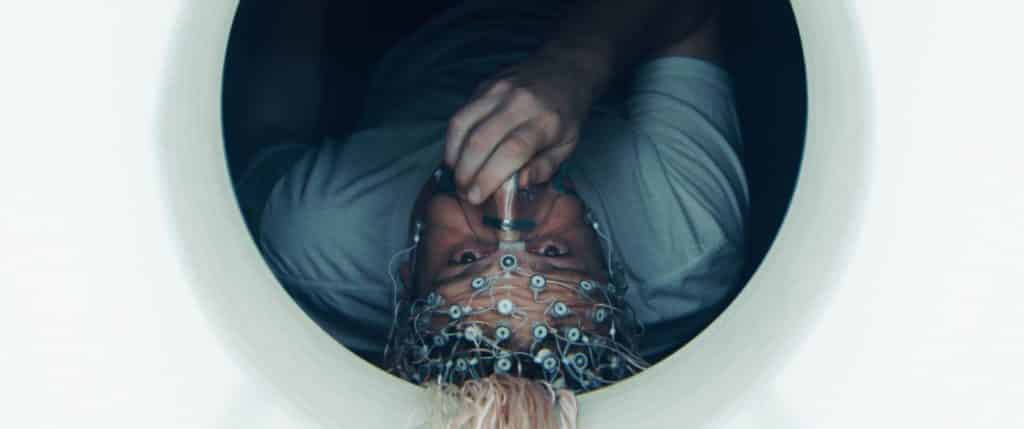Smaller science fiction films appear to be dying. Aside from a few examples like Ex Machina, most of the science fiction market is saturated by blockbusters that mostly leave their brains at the door. This is a shame, as science fiction is known by most for its thoughtful examinations of socially relevant issues.
One of the few directors trying to continue the trend is Charlie McDowell, who with the great The One I Love and his latest film The Discovery asks big questions that don’t have easy answers. The Discovery is set in a world where scientist Thomas Harbor has discovered the after-life, which has led to millions of suicides. A year after this discovery, his son Will returns home to try and stop his father’s further experimentation.
Picked up by Netflix after premiering at the Sundance Film Festival, The Discovery is a bold film, one that ponders death and our innate curiosity with the afterlife. Despite its many flaws, its existential journey is an engaging one.
Even with only two movies in his resume, McDowell continues to prove himself to be one of the most exciting directors working in the industry. The Discovery expands McDowell’s scope, creating a somber world that feels the presence of loss. At the same time, he thankfully keeps a similar level of intimacy with his characters and story. His filmmaking in general is impressive, highlighted by the film’s shocking opening sequence among other strong moments.
McDowell’s greatest strength here is just how patient he is, letting his material breath on screen. This allows the characters and audience to ponder the world that is created, soaking up the interesting ideals this film proposes. At around 102 minutes, the film never overstays its welcome, moving with a deliberately slow pace and keeping audience engaged through its existential ideals.
Performance-wise, this film offers an interesting mixed-bag. As Thomas, Robert Redford delivers one of his best performances in years, portraying the arrogant scientist who has his own stark insecurities about his work. Rooney Mara as always delivers strong work here, being one of the best at revealing emotional vulnerabilities in even the weakest of characters on the page. Jesse Plemons and Riley Keough are also quite good in their small roles.
The performance I was most excited for entering the film was Jason Segel, who disappointingly turns out to be the weak link of the cast. After showing great range with The End of the Tour, Segel struggles in a part that mostly just relegates him to being quiet and somber. Will in general is a weak protagonist, being more of an observer of the world around him rather than an active participant.
After crafting such a tight-script with The One I Love, McDowell and co-writer Justin Lader get in their own way. The story, which has an engaging start, goes off the rails in the third act. While the last twist is an interesting idea, most of what it takes to get there feels surprisingly contrived. The duo also are never able to make these characters as interesting as the world they live in, with the film having a disconnect emotionally with me personally.
The Discovery may not reach the lofty heights of its ambitious set-up, but it’s a film that delivers intriguing ideals and signature moments in spades.


